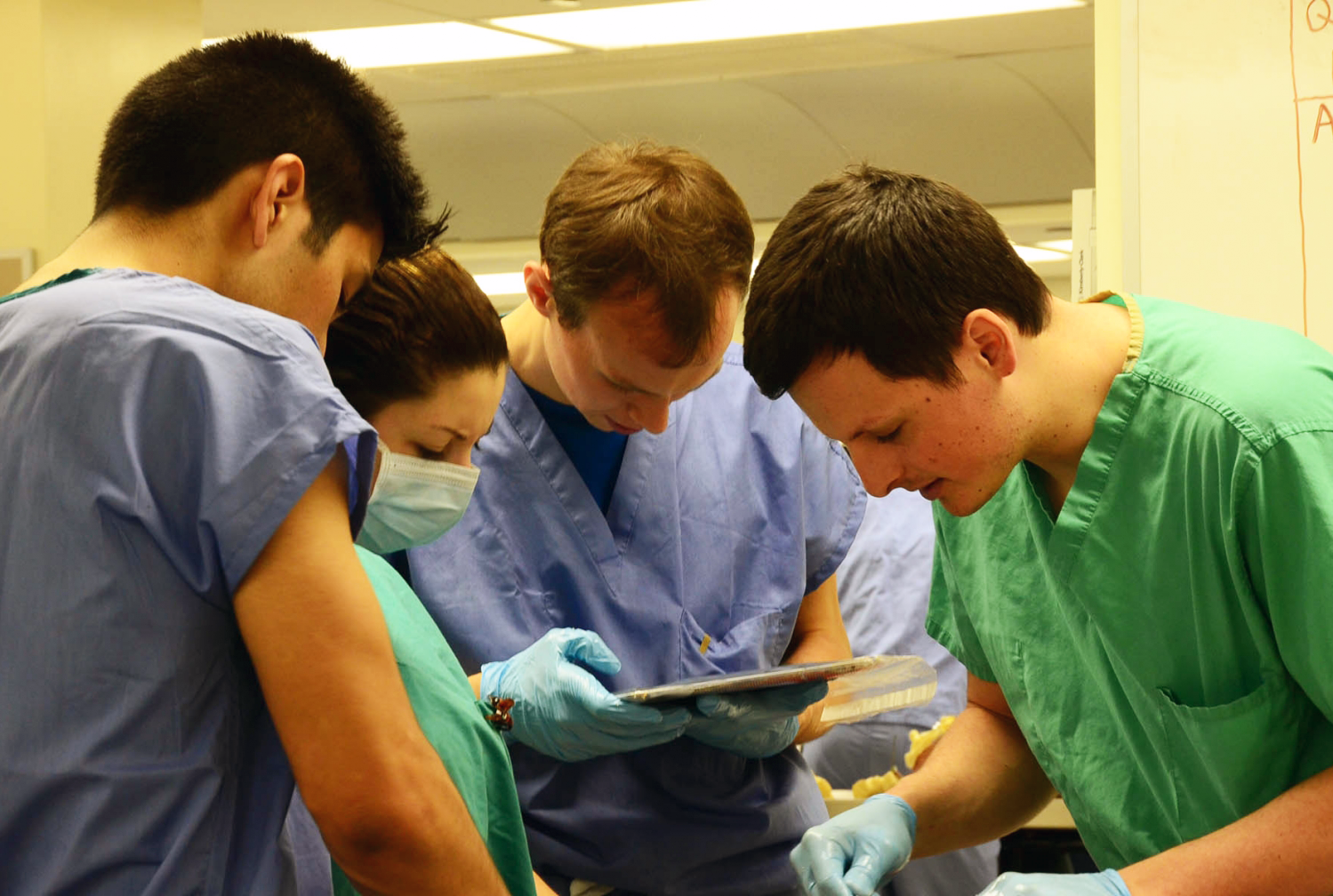Weill Cornell Medicine has been recognized as an Apple Distinguished School for 2021-2024 for continuous innovation in teaching and assessment.
Apple Distinguished Schools are centers of innovation, leadership and educational excellence. They use Apple technology to connect students to the world, fuel creativity, deepen collaboration and make learning personal. Apple recognized Weill Cornell Medicine for its innovation in delivering medical education through Apple technology, including iPad, Apple TV, AirPlay, iMac, iCloud and more.
“We are thrilled to have been named an Apple Distinguished School,” said Dr. Yoon Kang, senior associate dean for education and the Richard P. Cohen, M.D. Associate Professor of Medical Education at Weill Cornell Medicine. “Our faculty members and students are well versed in the strategic use of Apple products, from note-taking to presenting to securing exams. We look forward to continued expansion of our digital environment and development of future-ready innovations for teaching, assessment, and learning.”
“This recognition acknowledges Weill Cornell Medical College’s hard work in making sure the right technology gets into the hands of our students,” said Doug Cohen, director of educational computing at Weill Cornell Medicine. “When I joined Weill Cornell in 2016, we distributed course material online but didn't take advantage of many advanced capabilities available. Now we are using the technologies in a much more strategic way to also include taking attendance, secure exams and more. We are also using custom apps and hosting integrated interactivity with small group sessions or problem-based learning sessions. I’m really proud of how far we’ve come.”
Weill Cornell Medicine currently provides iPad to all incoming medical students. Each device includes a curated set of apps to support medical education curricular materials. Classrooms and the Samuel J. Wood Library on campus are equipped with iMac. And visualization apps have been built to prepare students for understanding the intricacies of the human anatomy and body systems, down to the cellular level.
The increased use of mobile technology coincided with the need to pivot to remote learning formats for most of the year due to COVID-19. “Numbers for iCloud, which functionally gives students an advanced digital whiteboard, was critical during the time that everything was remote,” Cohen said. “Our usage and support of the various Apple technologies gave us a huge leg-up. And we were able to provide students with their iPad so that on day one, they were ready to go for class, even though class looked different.”
Cohen is especially excited about the potential of the “WCM Here!” app, which uses a Bluetooth technology known as “beacons” to streamline attendance for certain classes or events. “In the future, we could actually build an interactive map of the Weill Cornell Medicine campus so that you can be on your phone and walking through the main building on 1300 York and be offered details about where you are or directions to where you need to be going,” Cohen said, adding that relevant information such as deans’ bios can become available when you are passing the dean’s corridor, for example.
As part of the program, Weill Cornell Medicine will have access to the community of Apple Distinguished Schools – providing the institution with the opportunity to share its best practices and also learn from others – as well as Apple executives that are focused on health care and medical education.
“We’re excited that Apple will be providing additional access to resources and expertise now that we are an Apple Distinguished School,” said Cohen, adding that monthly check-in calls allow Apple to discuss new features that can be beneficial to students and faculty.

